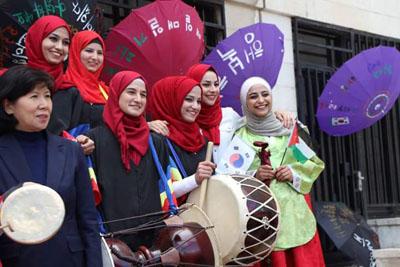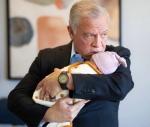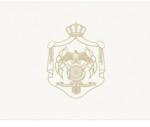You are here
‘Interest in Korean language, culture growing among young Jordanians’
By Muath Freij - Nov 03,2015 - Last updated at Nov 03,2015

Jordanians studying for a joint Korean-English language degree take part in a recent event at the University of Jordan (Photo courtesy of Yeongsuk Yi )
AMMAN — The Korean language was not what Yasmeen Awwad planned to study when she first entered university five years ago.
Awwad recalled that she wanted to study English, but her General Secondary Education Certificate Examination score qualified her only for a joint Korean-English language degree.
She was planning to change her major during her first week at the University of Jordan (UJ), but ended up falling in love with the Korean language and culture.
“The first things that attracted my attention were the culture and how teachers treat me in a respectful way, so I became interested in learning more about Korean history, lifestyle and food,” she told The Jordan Times.
Awwad is among a number of Jordanians for whom studying the language has increased their appreciation of Korean culture.
There are 158 Jordanian students currently studying the Korean language as a bachelor’s degree, 61 students have been accepted this year, according to Ahmad Al Afif, head of the Asian languages department at UJ.
Afif said Korean is among four foreign languages with dedicated bachelor’s degrees, which indicates the popularity of the language among the younger generation.
University enrolments, however, do not reflect the full number of Jordanians with a passion for all things Korean.
Around 1,750 Jordanians attended the Korean activities that were held in the capital this year, according to figures from the Korean embassy in Amman.
Some 700 people attended the K-Pop World Festival; 350 visited the Korean Film Festival (though fewer than the 600 visitors last year); 300 attended the Korean speech contest and 400 watched a performance by the music group Coreyah, according to the embassy.
Korean Ambassador to Jordan Choi Hong-ghi said these events contributed to popularising the Korean culture among Jordanians, leading them to develop enough fondness for it to learn the language.
“The Korean embassy has organised cultural events on a regular basis, particularly since last year. In the past, the events were organised from time to time, and last year I brought them together under the umbrella of a cultural week,” Choi told The Jordan Times at the Korean embassy.
He noted that Jordanians’ interest in Korea has been supported by many aspects in common between the two cultures, especially the respect people show towards the elderly, which is a basic element of Korean life.
The diplomat also credited an exchange programme — agreed between the governments of Jordan and Korea in the fields of education, tourism and culture, which is renewed every three years — with raising awareness of Korean culture.
Around 20 Korean volunteers are active in Jordan and work in several fields, including music and education for Jordanians wishing to learn about Korean culture.
Yeongsuk Yi of the Korean International Cooperation Agency, who teaches the language at UJ, said many young Jordanians’ fascination with Korea’s traditional garments and cuisine has boosted enrolment in language programmes.
“We have a lot of activities at the university, like cooking Korean food and wearing traditional Korean costumes, and these activities help the students learn more about the language and the culture,” she told The Jordan Times.
The professor recounted that many students she has spoken to believe that Korean is the easiest Asian language to learn.
The Korean ambassador said films and TV series are important tools that expose Jordanians to his country’s culture.
“Movies and series have a really interesting way of storytelling and they can easily [influence] people’s emotions and feelings. They make them interested in the culture — this is the starting point and they can understand the way of life through movies.”
Noting that two Korean series — dubbed into Arabic — were broadcast on Jordan Television in the past, Choi said he aims to help arrange the broadcast of other series if financing is available.
Learning about the language and culture has sparked ambitions in the university students to bring the two countries closer together.
Awwad said she wants to continue her studies in Korea, and hopes to be able to offer language lessons at affordable prices so that everyone can learn it.
Shaden Mustafa, another Korean-English language student, expressed her desire to create opportunities for cultural exchange between the two countries.
“I want to implement my experience and knowledge about the Korean language and spread it in our community and also make Koreans aware of our culture,” the 21-year-old said.
Afif said UJ’s Korean language department does not have any Jordanian teachers yet, so he is looking forward to having graduating students return to the university to teach the language.
Awwad’s passion for Korean culture, however, has taken her in another direction.
“I want to open my own Korean restaurant in Amman because I really love the food and want to introduce Jordanians to Korean cuisine.”
Related Articles
AMMAN — More than 1,000 students from Jordan University (UJ) on Wednesday attended the third edition of the “Korea in a day” festival, aimed
AMMAN — For Sarah Atmeh, an interest in Korean drama series and K-pop music that she found online led her on a journey into Korean culture.&
AMMAN – Sahar Tannerah’s admiration for Korean culture encouraged her to attend the 10th Korean Film Festival in Amman, which started on Sun
















